How the final journey of Dom Phillips and Bruno Pereira ended in murder.
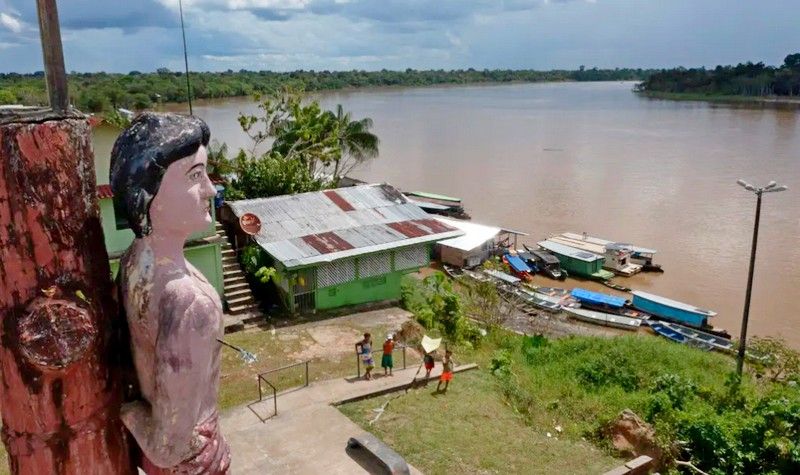
The Guardian - Tom Phillips -Atalaia do NorteFri 17 Jun 2022 18.37
The journalist and Indigenous expert traveled upstream in Brazil’s far western Amazon region, a trip from which they did not return alive
Dom Phillips loved the Amazon and he loved the Amazon’s fish. His favorite was the tucunaré, a speckled South American peacock bass whose Indigenous name means “friend of the trees”.
There is a war on nature. Dom Phillips was killed trying to warn you about it
The disappearance of Dom Phillips and Bruno Pereira – a timeline
It was in a hotel room named after the tucunaré that the British journalist spent his last night before venturing into the jungle with the Brazilian activist Bruno Pereira on the afternoon of Thursday 2 June.
But before checking out of the hotel in the river town of Atalaia do Norte, Phillips had one final interview to do.
After discovering that his hosts ran an eco-tourism company for fishing enthusiasts, the veteran correspondent grabbed his Dictaphone, pulled up a white plastic chair, and began peppering them with questions about the Amazon and their sustainable work.
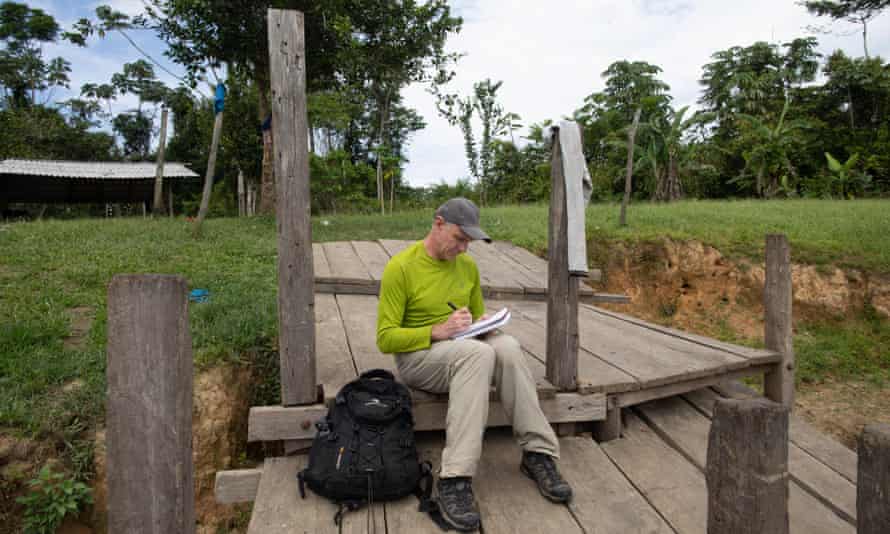
“He sat down right there with a recorder just like this one,” said Rubeney de Castro Alves, one of the owners of Javari Expeditions, breaking down in tears as he remembered his brief encounter with Phillips and the smile-filled selfie they took before he left.
As he settled his 100-reais (£17) bill, the British journalist told Castro Alves he would return from the rainforest in three days. “RETORNO – DOMINGO,” the hotelier wrote on his check-in card next to Phillips’s squiggly handwriting. “BACK – SUNDAY.” He underlined the second word for emphasis.
Minutes later the journalist was gone, heading a few hundred meters down the road to the dilapidated river port where he and Pereira would begin their final voyage.
As their motorboat set forth into the murky brown waters under a cloud-filled sky, a friend standing on the dockside used his mobile phone to take two grainy photographs of the pair – perhaps the last existing images of the men, who by then had less than three days to live.
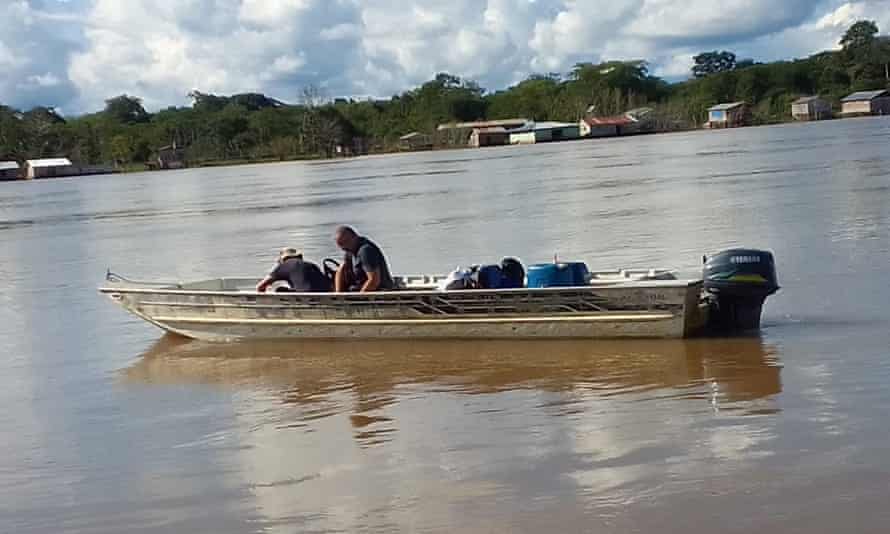
From Atalaia do Norte, the men headed south along the meandering River Itaquaí. They stopped at a riverside hamlet to collect some paddles Pereira had commissioned for the Indigenous people whose cause he had championed.
Before leaving his hotel, Phillips told its owners they were heading down a different river, the Javari – seemingly a security measure adopted as a result of the threats Pereira had received because of his activism in a lawless border region rife with environmental crime and drug trafficking.
Phillips told Castro Alves they would visit the Curuçá Indigenous protection base which guards one of the entry points to the Javari Valley territory, an Austria-sized expanse of rainforest that is home to more than 20 Indigenous communities, the majority uncontacted.
“Perhaps it was a strategy to throw people off their scent. I think it must have been,” said Castro Alves, a close friend of Pereira.
In fact, Pereira and Phillips were traveling up the Itaquaí to the Lago do Jaburu, where Indigenous activists have created a riverside surveillance point to monitor the illegal fishing gangs pillaging fish stocks within the Javari territory.
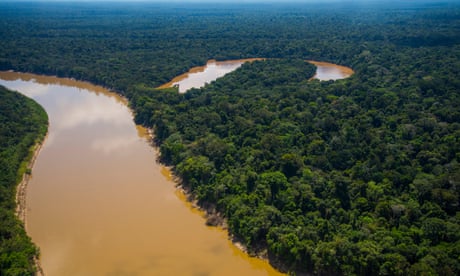
With their boat’s 40-horsepower outboard motor, it would have taken about two hours to arrive. The men spent their first night sleeping in hammocks as the jungle around them erupted in a bewitching symphony of bird and insect songs.
Early the next day Phillips, who was writing a book called How to Save the Amazon, began his interviews with members of the 13-strong surveillance team tasked with keeping environmental criminals out of an Indigenous territory that is home to the greatest concentration of uncontacted peoples on Earth.
“I was with him on Thursday, Friday, and Saturday,” said one of those Indigenous guards, Tumi Matis.
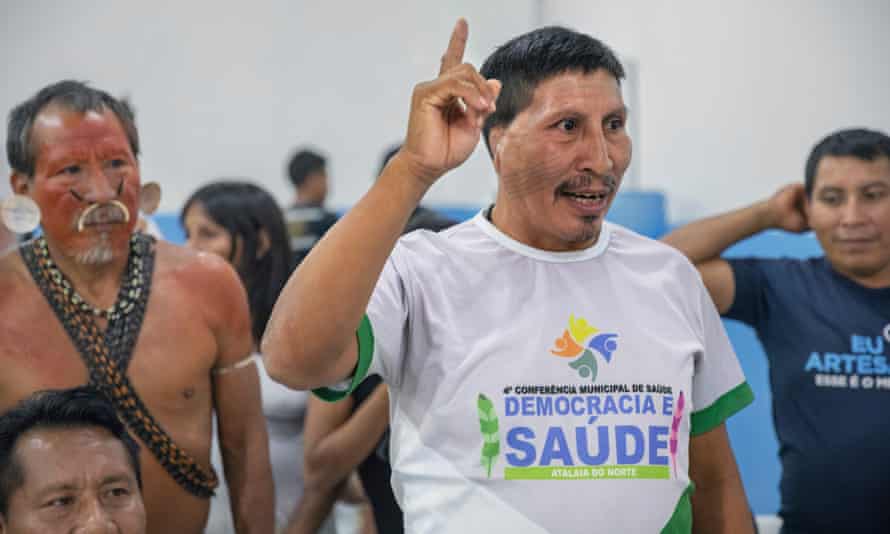
“Dom asked me what was happening in the Javari Valley. ‘Why are you patrolling it?’ I said it was because fishermen and invaders were coming into our territory to steal our wildlife – tracajá river turtles and pirarucu fish,” said Matis, who hails from a village called Bukuwak, which means Paradise in the Pano language spoken by his people.
“In the cities, people are cutting the trees down. Not here. Here we are protecting the forests,” Matis told the reporter proudly.
Andrew Fishman, an American journalist who talked often with Phillips about the book while paddleboarding off Rio’s Copacabana beach, said his friend had made a succession of trips to the Amazon since the project was conceived three years ago, gathering hundreds of hours of interviews.
Having undertaken a punishing 17-day expedition with Pereira deep into the Javari Valley for the Guardian in 2018, Phillips was keen to return. “He was eager to go back and see how things had changed in the few years since he had been there,” Fishman said.
“He seemed really excited about the book and a little bit nervous about its ambitious scope, as any sane person would be.”
“He wanted to make it a mainstream book so that it alerted everybody to the problems with the deforestation and the destruction of the Amazon,” said the journalist’s sister, Sian Phillips. “He wanted to find people to talk to in the Amazon who could tell their story. He wanted to give their story.”
Those who met Phillips on the final reporting trip of a 15-year career in Brazil, said he seemed in his element as he toured the isolated jungle region seeking insights that would help explain the complexities of the battle to save the Amazon.
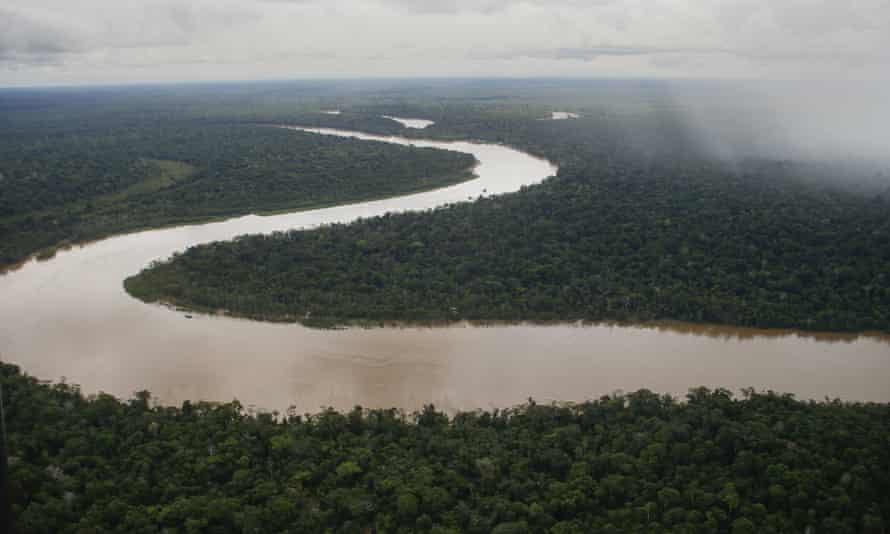
“He seemed cheerful – he said he loved his work,” said Orlando Possuelo, another leading member of the new generation of Brazilian Indigenistas and the son of the legendary Indigenous defender and explorer Sydney Possuelo.
Possuelo offered a word of warning to Phillips during their two-hour meeting in Atalaia do Norte at the headquarters of Univaja – the Indigenous rights group where Pereira worked after being sidelined from Brazil’s Indigenous protection agency during the government of the far-right president Jair Bolsonaro.
In February, one of the men now in custody for the murders of Pereira and Phillips, a fisherman called Amarildo da Costa Oliveira, allegedly fired shots at Pereira and another colleague on the Itaquaí.
“I told him: ‘Take care in the region you’re going to. Did you know they’d shot at Bruno?” Possuelo remembered saying.
“Really?” Phillips replied, before returning to his hotel to pack.
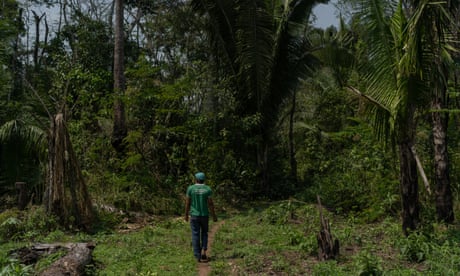
Pereira’s friends say he refused to be intimidated by the threats and the increasingly violent atmosphere that has gripped Brazil since the 2018 election of a president who has overseen what activists call a historic assault on Indigenous rights and the environment.
“These fishermen aren’t capable of killing me,” Pereira recently told a friend, according to Rubens Valente, a Brazilian journalist who has written extensively on the Amazon.
“He thought they were empty threats,” Valente said.
They were not. At about 6 am on Sunday 5 June, having concluded his reporting, Phillips and Pereira started heading back down the Itaquaí towards Atalaia do Norte en route to a cold beer and a hot shower.
They stopped briefly at a riverside village, São Rafael, to talk to a local fisherman but left after being told he was not home. Minutes after retaking the river they were dead, ambushed and dragged into a nearby patch of jungle where they were buried in the ground.
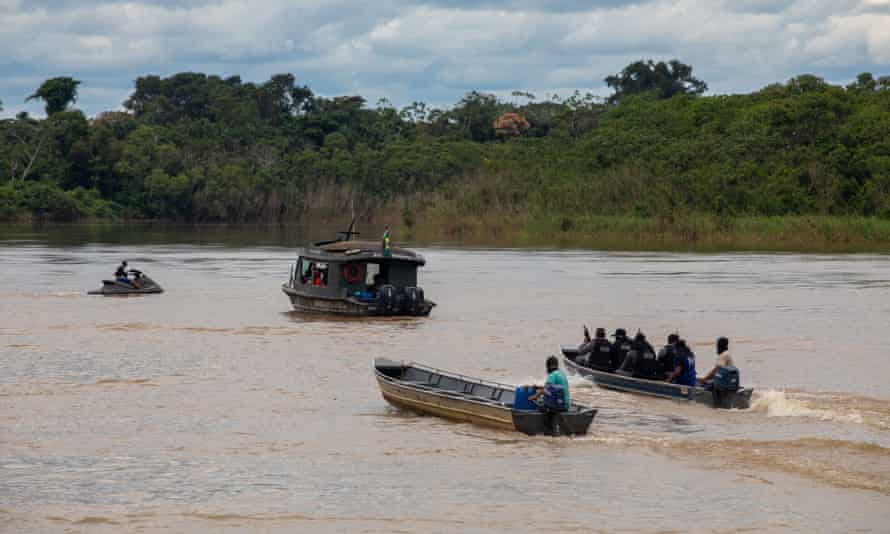
Their belongings were stashed in a nearby patch of flooded forest where Indigenous search teams found items including Phillips’s backpack and a pair of trousers belonging to Pereira.
On Wednesday, after a 10-day search, their bodies were finally found.
“I feel anger and disgust,” said Valente, who is in Atalaia do Norte to report on the murder of his friend. “The truth is that this was a death foretold … it is an irreparable loss.”
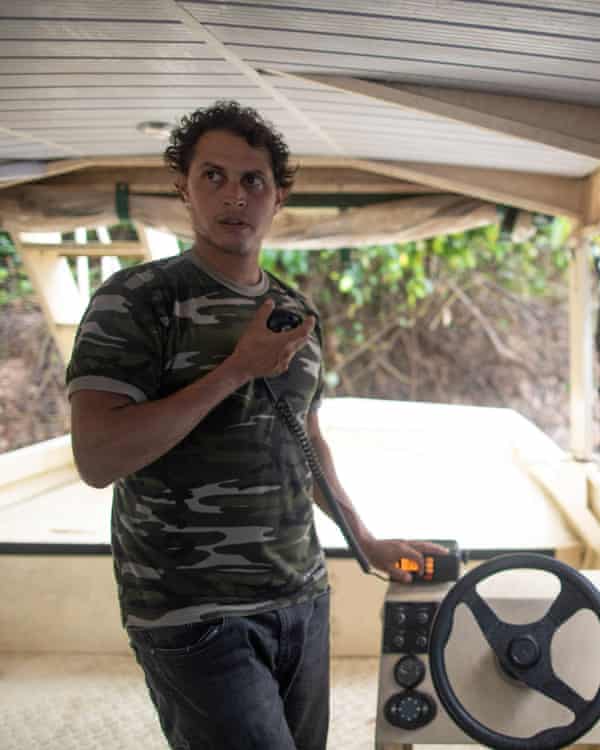
As he sat outside the hotel room Pereira had occupied before journeying into the rainforest, named after the Mayuruna people of the Javari, Valente fell silent and shook his head in disbelief.
Night had fallen by the time Phillips and Pereira recommenced their river journey, from almost the same point at which it had been so brutally interrupted.
At around 6.40 pm on Wednesday, they set off down the Itaquaí towards Atalaia do Norte in a three-vessel cortege led by a white ambulance boat and escorted by army troops.
Minutes later Orlando Possuelo emerged from the jungle, where a crestfallen Amarildo da Costa Oliveira had led police to the burial site.
“I’ve destroyed my life. I’ve destroyed the lives of my family,” the alleged killer was heard muttering.
Possuelo headed downriver to the Indigenous search base he has been coordinating since the hunt for Pereira and Phillips started almost two weeks ago.
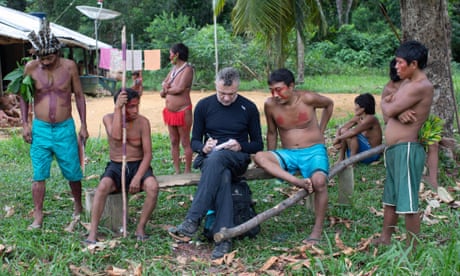
“It feels like mission accomplished,” said Possuelo, surrounded by Indigenous volunteers from the Marubo, Kanamari, and Matis peoples, who played such a key role in bringing the men home.
“We always say when we go about our work that we will never leave anyone behind - and we stayed here and we fought for our colleague,” Possuelo said.
As the group dismantled their riverside encampment and prepared to cast off, Possuelo said his focus would now shift to another, equally crucial mission: securing justice for the families of both murdered men.
Further down the river, the boat carrying Phillips and Pereira powered homewards through the darkness towards a perfect full moon.
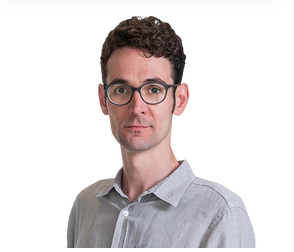
Journalist Tom Phillips
Commentary:
Why do newspapers send/pay journalists to enter such an area known to be very dangerous, to investigate the ravaging of the Amazonas area, so important to the world's protection of forest areas? It was supposed to be one of Dom Phillips’s last trips to the Amazon, the kicker for a book that would reveal all the lush complexity of the world’s largest rainforest. HMM!!
HUMAN SYNTHESIS
COPYRIGHTS
Copy & Paste the link above for Yandex translation to Norwegian.
WHO and WHAT is behind it all? : >
The bottom line is for the people to regain their original, moral principles, which have intentionally been watered out over the past generations by our press, TV, and other media owned by the Illuminati/Bilderberger Group, corrupting our morals by making misbehavior acceptable to our society. Only in this way shall we conquer this oncoming wave of evil.
All articles contained in Human-Synthesis are freely available and collected from the Internet. The interpretation of the contents is left to the readers and does not necessarily represent the views of the Administrator. Disclaimer: The contents of this article are of the sole responsibility of the author(s). Human-Synthesis will not be responsible for any inaccurate or incorrect statement in this article. Human-Synthesis grants permission to cross-post original Human-Synthesis articles on community internet sites as long as the text & title are not modified.
HUMAN SYNTHESIS